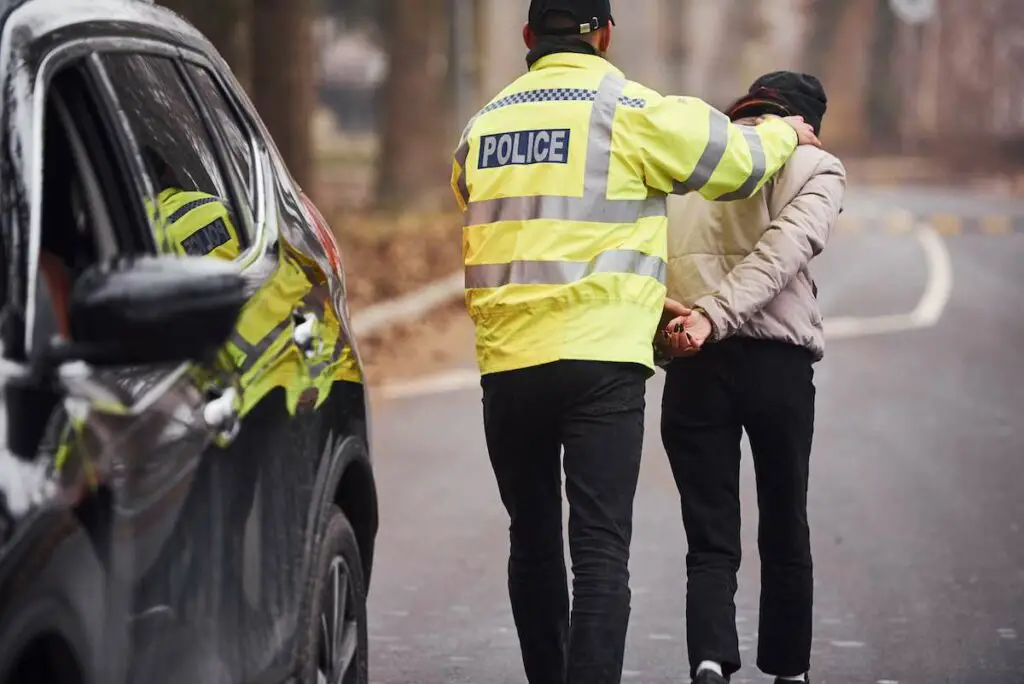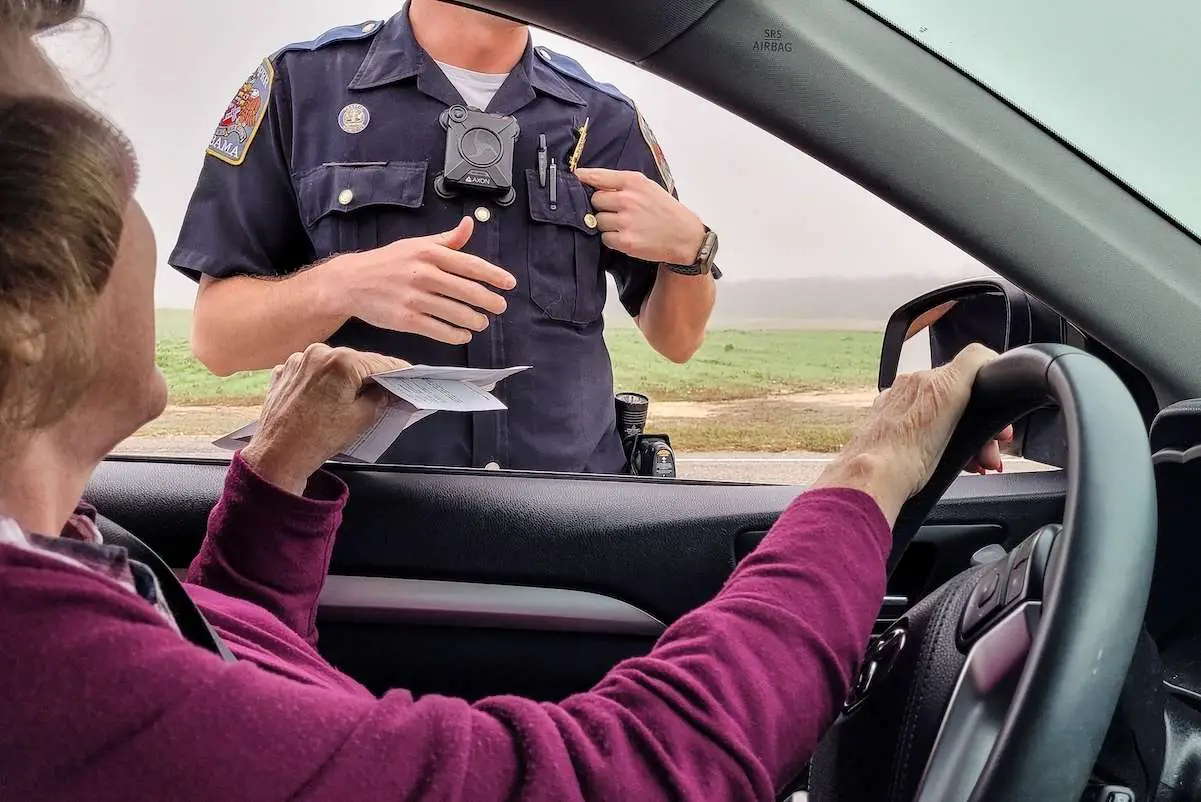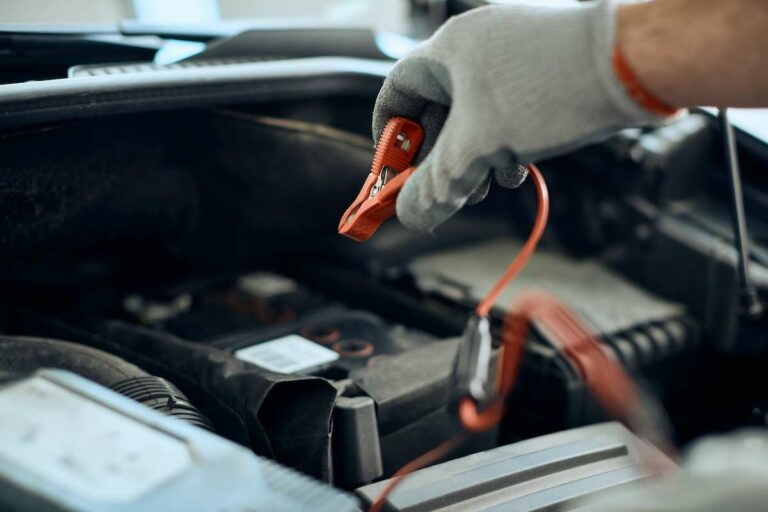Can a Police Officer Open Your Car Door Without Permission?
Interactions with the police force and its officers are not always a pleasant experience for the innocent or guilty parties involved. Citizens generally don’t trust the police, and the police officers don’t trust all motorists that they pull over.
It’s best to do whatever the police officer asks when stopped. However, the valid question is, “Can a police officer open your car door without permission?”
A police officer can open your car door without permission if he has a warrant, if he’s arresting you, or when he has probable cause to believe that the vehicle contains evidence of a crime. Another valid reason is if a police officer feels in imminent danger or sees illegal objects in plain view.
The act immediately constitutes a search when a police officer opens your car without permission. The Fourth Amendment protects civilians against unlawful searches and seizures regarding private property. Probable cause must be met before police conduct a search, make an arrest, or receive a warrant. Let us examine when a police officer could open your car door without permission.
Can A Police Officer Open Your Car Door Without Permission?
The Constitution’s Fourth Amendment keeps the government from searching for or taking things from people without a good reason. The Fourth Amendment, on the other hand, does not protect against all searches and seizures. It only protects against those that the law says are unreasonable and unfair.
A policeman may open your car door without your permission in the following instances:
- The police officer has a search warrant issued by the court.
- He believes there’s probable cause that your vehicle contains evidence of criminal activity.
- Illegal objects in plain view give the police officer probable cause.
- When you get arrested.
- When the police officer fears for his safety.
- When the police tow your car.
When Can A Police Officer Open Your Car Door Without Permission?
Police officers have a dangerous job that puts them in harm’s way more times than the average law-abiding citizen will believe.
As mentioned, a police officer will be guided by the policy of the policing state department operating in a specific state, the Fourth Amendment, and most importantly, the situation that unfolds when a vehicle stop is made.
Here are a few examples of when a police officer can open your car door without your permission:
1. When The Police Officer Has A Search Warrant
When an officer has a valid search warrant, he can legally open your car door without your permission and perform a search as stipulated by the warrant. A warrant is a piece of paper granted by the court via a judge or clerk magistrate.
A warrant is only issued after the police have gone to court, filled in forms and affidavits, setting out enough facts to establish probable cause that evidence of a crime will be found in a vehicle.
An officer will rarely have a warrant ready, especially when being pulled over the roadside unless you are targeted beforehand, which indicates that you are being suspected of a crime.
Probable Cause Believing The Vehicle Contains Evidence Of Criminal Activity
According to US Courts, a police officer may lawfully search a vehicle where there is “probable cause to believe that the vehicle contains evidence of a criminal activity” When probable cause is established, “an officer may lawfully search any area of the vehicle in which the evidence may be found.”
Technically, a police officer may search any vehicle on the grounds of “probable cause,” but should the search reveal nothing, and the driver believes that his rights were violated, civil legal action can be taken against the police department (not against the actual police officer who conducted the search.)
The onus will be on the police department to prove what circumstances led them to believe that “probable cause” was established, giving them the right to open a car door without permission and search private property without a proper search warrant.
2. Illegal Objects In Plain View Gives Them Probable Cause
A police officer performing a routine stop can be expected to approach the vehicle’s driver to obtain relevant information and is entitled to be in the position of the driver’s side door. Should there be any contraband or drug paraphernalia in plain view, the police officer can search the car without a warrant.
If the police officer needs a warrant or legal justification to search and take something, his lawful inspection will give him those reasons. The need for probable cause limits the plain view principle. Officers must have a good reason to think that items in plain sight are illegal before they can search or confiscate them.
The court has used the “plain view” doctrine as an example to say that once officers have legally seen contraband, “the owner’s privacy interest in that item is lost,” and officers can reseal a container, track its path with a controlled delivery, seize and open up the container without a court-issued warrant.
In a nutshell, if a police officer sees contraband in your car from the outside that’s in plain view, he can open the car door without your permission, based on the fact there’s probable cause to believe that your car contains evidence of a crime.
3. When A Police Officer Intends to Arrest You

Another reason for a police officer to open your door without your permission is when you are getting arrested. It doesn’t matter what the offense is for; it could be for any of the following reasons:
- Driving under the influence
- Drugs or guns violation
- Warrant for arrest out on your name
- Traffic violations
Police officers are then allowed to open your car door and search the passenger compartment of your car and any reachable area that you could have put your hands on, commonly referred to as the lunge, reach or grasp rule or the “wingspan test.”
A police officer can then search anything in this area, including jackets, bags, and anything else found in this specific search area. Another instance when a police officer can open your car door without permission is if you’re arrested for drunk driving when there’s no one to drive your car home, and he needs to perform an inventory search.
4. When The Police Officer Fears For His Safety
Suppose you get pulled over for a traffic violation or a routine stop. If you don’t want the police officer to unnecessarily open your car door and search your vehicle, you need to act calm and refrain from lots of hand movement out of the officer’s line of sight. Don’t act weird.
If you say or do something that leads the officer to believe he may be in danger, you can be requested to step out of the car. The officer will pat you down, and even if he finds nothing on you, you are then allowed to go into the passenger compartment of your car and search the area you could reach for weapons.
5. When The Police Plan To Tow Your Car
Let’s pretend you were involved in a vehicle accident, and your car is undrivable; often, the police will organize to get it towed from the scene.
Or you get arrested, and there’s no one to drive your car home, or your car could be broken down alongside the road; any reason that results in the police getting a tow truck to tow your car away will result in them entering your car and performing an inventory search.
An inventory search is to safeguard your belongings by listing everything of value and is not meant to be an evidence search. The inventory search and listing procedure safeguard the police from any claims from the car owner regarding items claimed to be missing at a later stage.
What To Do When A Police Officer Opens Your Car Door?
Should a police officer stop you, it’s very important for your safety to stay calm. Please keep your hands where the police officer can see them. When reaching for documents, tell the officer where they are located before retrieving them.
Don’t give false information or lie. Do as instructed, don’t resist, and if the police officer asks if he can open your car door to search the vehicle, you can decline the request. Declining the request won’t automatically stop the officer from opening your car door or being asked to step out of the car to be patted down.
No one can search you, your car, or your home without your permission, a warrant, or a valid reason. You can say, “I don’t want this search to happen.” Even if the search continues, this is the best way to protect your Fourth Amendment rights in any later legal proceeding.
Ask to see the court-issued warrant if the police officers say they have one. If they don’t have a warrant and keep searching, you should clarify that you don’t agree but don’t do anything to stop them. You are allowed to record the search, but it’s good advice not to impede the officers performing the search.
The best route when you are recording is to inform the officers that you are filming the procedure, which is a right protected under the First Amendment. No police officer is allowed to confiscate your filming device, demand to view the footage, or delete anything without a warrant.
Even if you can’t record it all, make sure you write down everything you can remember. The information should include the officers’ badge and patrol vehicle numbers, which agency they were from, how many police officers were there, and what their names were.
Record if any weapons were used (even less-lethal ones like Tasers or batons) and if there were any injuries to yourself. If there are witnesses, ensure that you get their contact numbers in case of a possible future lawsuit or complaint.



![Do Cars Lock Automatically? [Here’s What You Should Know!]](https://vehicleuniversity.com/wp-content/uploads/2023/01/car-key-in-female-hand-on-the-backdrop-of-auto-2022-06-13-23-51-39-utc-768x512.webp)
![What Kind of Acid is in a Car Battery? [With Explanation!]](https://vehicleuniversity.com/wp-content/uploads/2023/01/daily-car-check-check-out-the-distilled-car-batter-2021-08-26-17-53-37-utc-768x576.webp)
![Car AC Cools For a While And Then Stops? [Mystery Solved!]](https://vehicleuniversity.com/wp-content/uploads/2023/01/girl-driver-with-hand-fan-suffering-from-heat-in-c-2022-11-15-04-07-09-utc-768x512.jpeg)
![Car AC Takes A While To Get Cold? [Here’s Why & What To Do!]](https://vehicleuniversity.com/wp-content/uploads/2023/01/girl-driver-has-problem-with-non-working-condition-2022-11-15-04-07-21-utc-768x512.jpeg)
![Car Accelerating On Its Own? [Reasons & How to Fix!]](https://vehicleuniversity.com/wp-content/uploads/2022/10/car-driving-the-norwegian-national-road-64-known-a-2021-08-26-16-34-54-utc-768x511.webp)